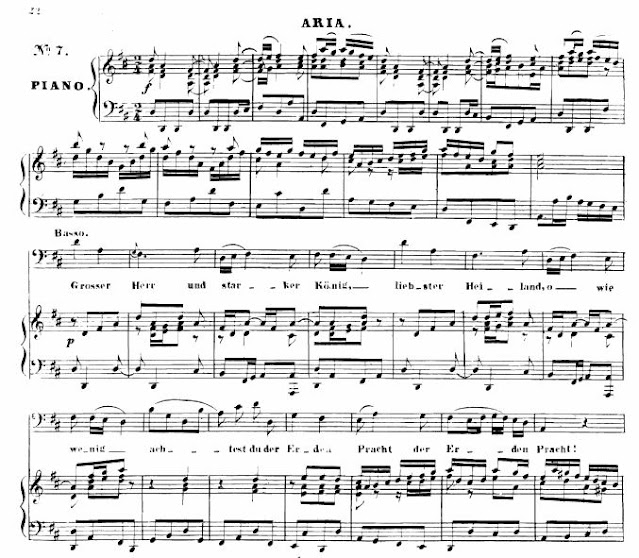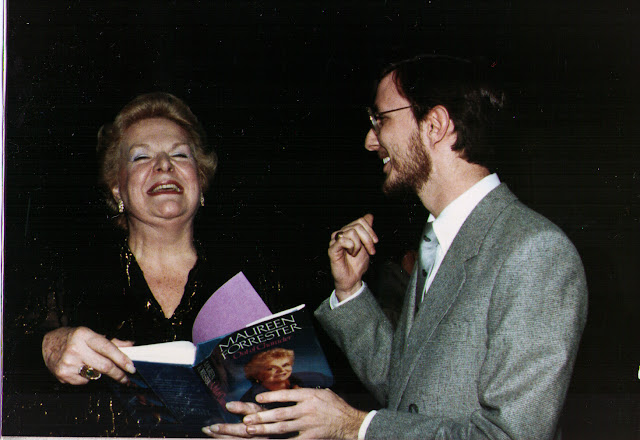Richard Strauss: Four last songs
Right now I'm listening to Jessye Norman singing "Beim Schlafengehen" and still cannot believe there is such a beautiful thing on this earth! It is so wondrous that everything and everyone else must be made a bit better by it. I first listened to this recording 25 years ago and didn't understand it, much less appreciate it. In 1987 I ran across the sheet music in an antique store in Mittenwald, where I could easily imagine Strauss himself had left it before going to dinner before performing his music for the guests in that town. But I'm digressing, something I find quite easy to do here on this blog.
I first came to appreciate "Beim Schlafengehen" while listening to the cycle with Elisabeth, a quite mystically gifted person I got to know while teaching at the Goethe Institut. She was telling me about a former boyfriend on the Canary Islands who had passed away but whose presence was still with her and which entered the room as we listened to the Swiss soprano Lisa della Casa singing the songs that evening. I may also have been feeling faint because we hadn't eaten very much and it was getting late, but I'll bet Antonio's soul was also getting in on the action, too.What did I not understand about the music the first time I heard it? The operatic quality of the melodic line may have turned me off. The seemingly muddled orchestration - with strings moving up and woodwinds moving down apparently at random - could have confused me. The poetic texts and modern harmonies could have hard to get my head around.
But if you open your heart to these pieces, they will reward you in unknown ways. Listen to them with a lover by the light of a candle (even Nirvana would probably sound good that way!). Kiri te Kanawa's recording with Georg Solti is also worth listening to for the beauty of her voice.
The recording artists were free to arrange the four songs in the order they preferred. I suggest you listen to "Beim Schlafengehen" last because it is - for me at least - the ultimate in the vocal arts. When the soprano and orchestra soar in the last verse on "Und die Seele", I get goosebumps. But they are just getting started! The words and music are woven together perfectly in that verse - "Nacht" is a low note. "Schweben" soars. "Leben" is composed to be sung affirmatively. The soul lives deeply and thousandfold!
Nun der Tag mich mud gemacht,
Soll mein sehnliches Verlangen
Freundlich die gestirnte Nacht
Wie ein müdes Kind empfangen.
Now that day has tired me,
My spirits long for
Starry night kindly
To enfold them, like a tired child.
Hände, lasst von allem Tun,
Stirn, vergiss du alles Denken,
Alle meine Sinne nun
Wollen sich in Schlummer senken.
Hands, leave all your doing;
Brow, forget all your thoughts.
Now all my senses
Want to sink themselves into slumber.
Und die Seele unbewacht
Will in freien Flügen schweben,
Um im Zauberkreis der Nacht
Tief und tausendfach zu leben.
And the soul unwatched,
Would soar in free flight
till, in the magic circle of night,
It lives deeply and a thousandfold.
An enormously intelligent and sensitive Facebook friend of mine recommended this recording of Charlotte Margiono singing "Beim Schlafengehen". We often share music tips and here he was right on. While the Dutch singer doesn't have the power of Jessye Norman nor the crystal clear voice of Lisa della Casa, she seems to combine the best of both worlds in this live performance from 1991 in the Concertgebouw Amsterdam.




Comments
Post a Comment